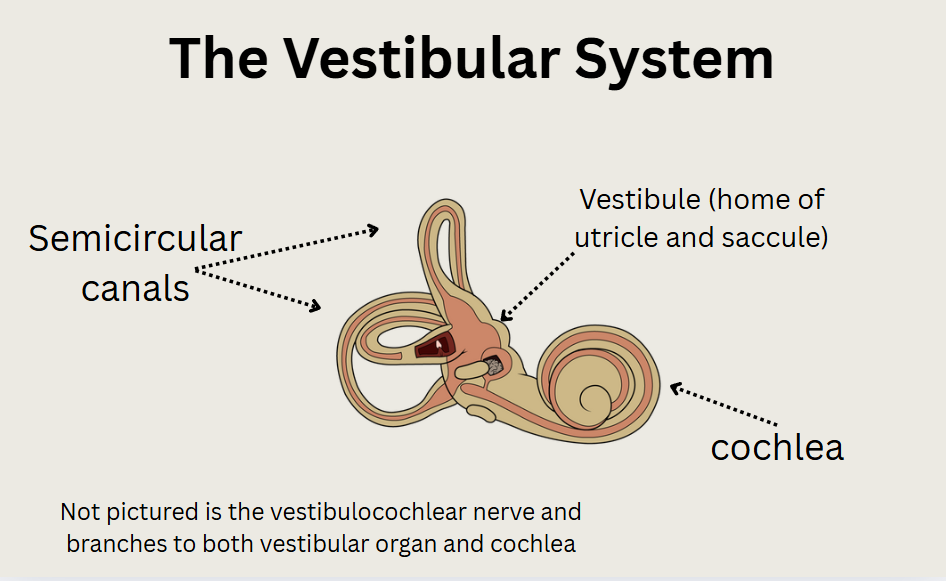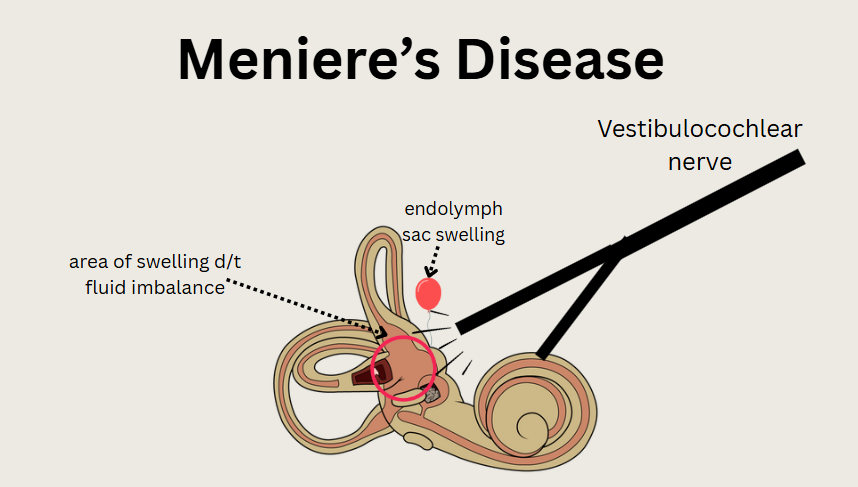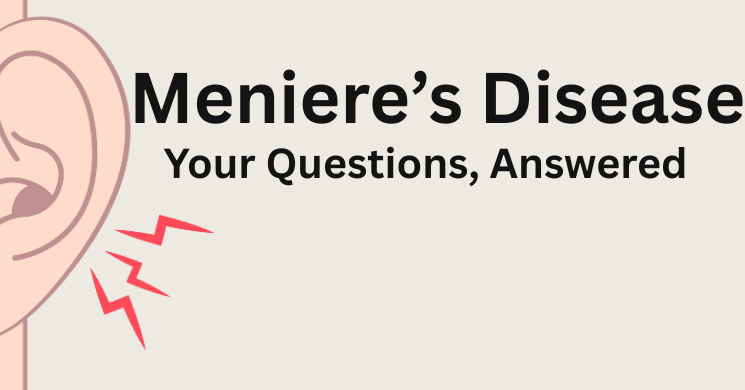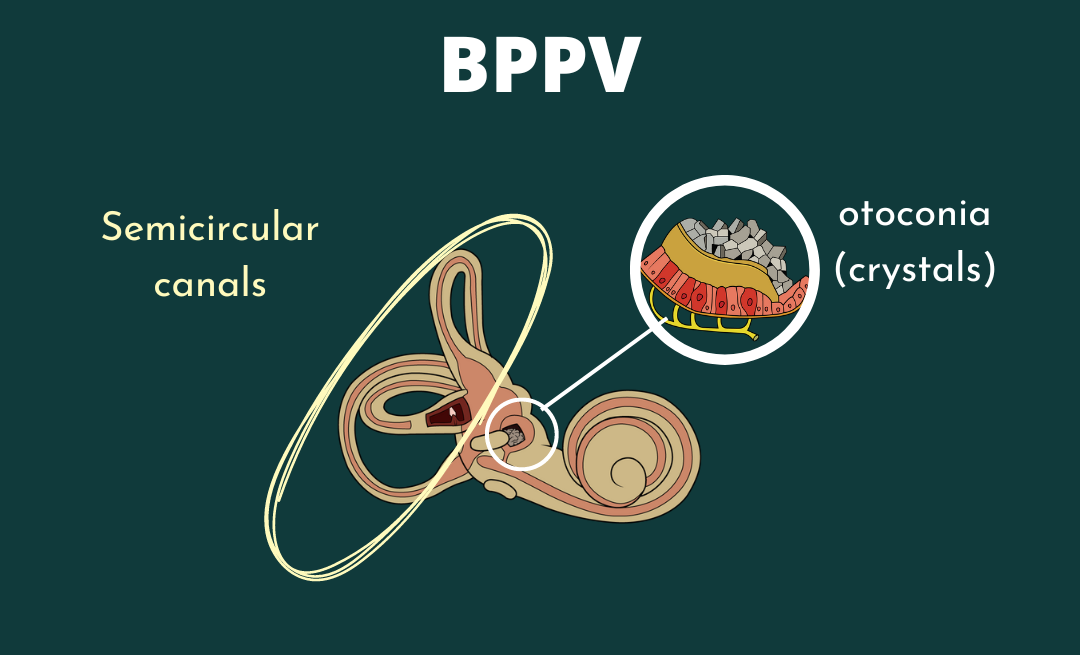Understanding Meniere’s Disease: A Guide to Symptoms, Diagnosis, and Support
Whether you’ve been recently diagnosed with Meniere’s Disease or are trying to understand a loved one’s condition, learning more about Meniere’s disease is a critical step in managing its effects and finding the right support. Living with Meniere’s disease can be disorienting and frustrating, especially when symptoms appear without warning. For those affected, the spinning sensation of vertigo, fluctuating hearing loss, and persistent ringing in the ears can interfere significantly with everyday life. This article will cover some background information, tools and support for Meniere’s Disease.
Background Knowledge: What is the vestibular system and a vestibular condition?
The vestibular system is a complex structure in the inner ear that works with your brain to control balance and eye movements. It includes semicircular canals and otolithic organs that detect motion and changes in head position. When the vestibular system functions properly, it helps you stay upright, move smoothly, and maintain orientation. However, when something disrupts this system, such as Meniere’s disease, it can lead to episodes of vertigo and imbalance. To learn more about the vestibular system, here is a podcast and additional blog post.

Common vestibular symptoms include (but not limited to):
- internal spinning
- external spinning
- bobbing/rocking/swaying
- brain fog
- fatigue
- anxiety
- eye strain
- nausea
- tinnitus
- light sound sensitivity
- visual/motion sensitivity
What is Meniere’s Disease? Who does if affect?
Meniere’s disease is a chronic disorder of the inner ear that affects the vestibular system and hearing. It is characterized by episodes of vertigo, hearing loss, tinnitus (ringing in the ear), and a feeling of fullness in the affected ear. These episodes can last anywhere from 20 minutes to several hours. While the exact cause is unknown, Meniere’s is believed to result from abnormal fluid buildup in the inner ear. It most commonly affects people between the ages of 40 and 60, but it can occur at any age. More on Meniere’s disease symptoms and diagnostic criteria here.

Symptoms associated with Meniere’s:
- spontaneous, severe vertigo (sometimes with a noted roar/whooshing sound just prior)
- fluctuating hearing loss
- tinnitus
- additional vestibular systems can also be experienced as well
How Is Meniere’s Disease Diagnosed?
Diagnosing Meniere’s disease involves a combination of patient history, symptom tracking, and hearing tests. Audiometry is used to assess hearing loss, particularly in the low-frequency range. Doctors may also use a balance assessment or MRI to rule out other conditions. A formal diagnosis typically requires at least two episodes of vertigo lasting 20 minutes or longer, hearing loss confirmed by a test, and tinnitus or aural fullness. More on audiology testing, including names of specific tests and what to expect here.
What Are Common Treatments?
While there is no cure for Meniere’s disease, treatments focus on reducing the frequency and severity of symptoms. These may include dietary changes (like reducing salt intake to manage fluid levels), diuretics, vestibular suppressants, and anti-nausea medications. In more severe cases, procedures such as intratympanic steroid injections, pressure pulse treatment, or even surgery may be considered. Lifestyle changes and stress management also play an important role in symptom control. For expanded explanations for treatments, check out this post discussing medical management, lifestyle changes and daily tips.
What Is Tinnitus and What Can I Do About It?
Tinnitus is the perception of sound—often described as ringing, buzzing, or hissing—when no external noise is present. It is a common symptom of Meniere’s disease and can range from mild to severely disruptive. Management strategies include sound therapy (using white noise or nature sounds to mask tinnitus), cognitive behavioral therapy (CBT), relaxation techniques, and in some cases, medications or hearing aids designed to reduce its impact.
How to Assist with Symptoms
Managing Meniere’s symptoms involves a holistic approach. During an episode, it’s important to lie down in a quiet, dark room to minimize vertigo. Staying hydrated, limiting caffeine and alcohol, and following a low-sodium diet can help prevent attacks. Balance therapy and physical therapy may also improve stability over time. These exercises may be needed after attacks to help address residual symptoms and imbalance. Creating a calm, supportive home environment and having a plan in place for sudden attacks can reduce anxiety and enhance quality of life.
Education and Support Groups for Meniere’s Disease
Education is key to managing Meniere’s disease effectively. Patients are encouraged to learn about their condition through trusted medical resources and to track their symptoms for better communication with healthcare providers. Support groups, both online and in-person, offer emotional support, shared experiences, and tips for coping.
- Meniere’s Society: https://www.menieres.org.uk/
- American Hearing Research Foundation: https://www.american-hearing.org/disease/menieres-disease/
- American Academy of Otolaryngology- Head and Neck surgery website and handouts
Summary
Meniere’s disease is a life-altering condition that affects balance and hearing, but understanding it can lead to better management and improved well-being. From learning about the vestibular system to exploring treatments, support networks, and symptom strategies, patients and caregivers can find effective ways to cope. Though living with Meniere’s poses challenges, knowledge, preparation, and community support can make a meaningful difference in navigating its ups and downs.
Want to learn more about dizziness and other vestibular tools from the experts and be a part of a supportive community to get back to your daily life? Find out more at this link here.
Disclaimer
Remember: this post is for informational purposes only and may not be the best fit for you and your personal situation. It shall not be construed as medical advice. The information and education provided here is not intended or implied to supplement or replace professional medical treatment, advice, and/or diagnosis. Always check with your own physician or medical professional before trying or implementing any information read here.






